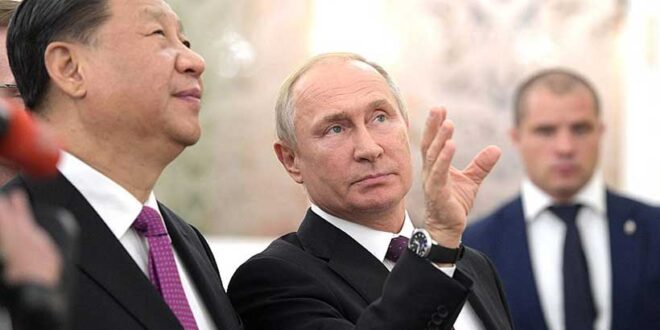Giancarlo Valori
After the Taliban took control of Afghanistan last August, Russia warned against the threat from the extremist organisation of the Islamic State (ISIS) and the increase in drug trafficking.
The Taliban have decided to cooperate with Russia, China and Iran to maintain regional security. The news agency France-Presse reported that the Taliban had participated in high-level talks in Moscow. During that time, ten countries requested emergency humanitarian assistance for Afghanistan and said that the countries which have recently withdrawn from Afghanistan should provide funds to help with reconstruction. The countries are the following: China, India, Iran, Kazakhstan, Kyrgyzstan, Russia, Pakistan, Tajikistan, Turkmenistan and Uzbekistan.
Before that meeting, Russian President Vladimir Putin had warned that some ten thousand ISIS fighters had gathered in Northern Afghanistan to spread religious and ethnic discord. The Soviet Union once bordered on Afghanistan and Russia still considers this area a zone of influence.
Putin reported in mid-September that the ISIS leader was planning to send people disguised as refugees to neighbouring countries in Central Asia.
The countries participating in the Moscow talks stressed in a joint statement that they were concerned about the actions of terrorist organisations and reaffirmed their willingness to continue to promote security in Afghanistan to contribute to regional stability.
Russian Foreign Minister Sergei Lavrov criticised the absence of US officials during the meeting. He said earlier that ISIS-affiliated fighters and al-Qaeda were trying to take advantage of the power void in some parts of Afghanistan.
In the joint statement, the participating countries urged the Taliban to implement appropriate and cautious domestic and foreign policies and adopt a friendly policy towards Afghanistan’s neighbours.
In terms of internal policy, they demand that the Taliban respect the rights of ethnic groups, women and children. Prior to that meeting, Taliban representatives had met with EU and US officials and had also travelled to Turkey, hoping to gain official recognition and assistance from the international community.
The Taliban are in desperate need of allies at the moment because Afghanistan’s economy is in danger due to the loss of international aid, rising food prices and increasing unemployment.
With specific reference to China and Russia, on the occasion of the 20th anniversary of the establishment of the Shanghai Cooperation Organisation and the signing of the Sino-Russian Treaty of Good Neighbourliness and Friendly Cooperation, relations between the two countries entered the third decade of stability and friendship.
Currently, however, the US withdrawal from Afghanistan has led to at least two negative outcomes for China and Russia: 1) Afghanistan, located in the ‘backyard’ of China and Russia has destabilised; 2) the conflict has been chaotic and the future is uncertain and after thirty years since the end of the Cold War, the United States has freed itself from that burden to focus on the challenges of the two major Eurasian powers.
Before the US withdrawal – although the Sino-Russian-US geopolitical game continued to intensify – Afghanistan was still the place where the interests of the three countries overlapped and the parties were all interested in achieving a “soft landing” on the issue.
Since 2019 the three countries have been working together in the form of an enlarged “troika” to peacefully resolve the Afghan issue. For Russia and China, the US military presence in Afghanistan was a double-edged sword: it did not only represent a geographical threat, but could also effectively contain radical Islamic forces in the region.
Both China and Russia hoped that, after reaching a sustainable peace agreement with the parties involved in Afghanistan, the US military would withdraw from Afghanistan in an orderly way to prevent Afghanistan from becoming a “terrorist sanctuary” again.
The quick US defeat in Afghanistan, however, without agreements and/or compromise solutions, was unexpected for China and Russia, especially when, on May 11, the US military evacuated the Kandahar airport without informing the Afghan government, etc.
China and Russia have no choice but to face an Afghanistan whose political future is doubtful. The two superpowers, however, have completely different attitudes towards the Afghan issue: the former is more proactive in contacting all parties inside and outside Afghanistan.
On May 11, at the Second Meeting of the Five Foreign Ministers in the format of “Central Asia and China” held in Xi’an, the Chinese State Councillor and Minister of Foreign Affairs, Wang Yi, had warned that “foreign troops should withdraw from Afghanistan in an orderly and responsible manner to prevent hasty actions against Afghanistan”. A few days later, the Chinese Foreign Minister told his Afghan counterpart that China was “willing to host Afghanistan’s internal talks and help its efforts against terrorism”. In mid-July, during the Shanghai Cooperation Organisation Foreign Ministers’ meeting in Dushanbe, Wang Yi reiterated that proposal.
It was in that context that Wang Yi paid an official visit to Tajikistan on July 14 and then participated in the Shanghai Cooperation Organisation Foreign Ministers’ meeting and met Russian Foreign Minister Lavrov in Tashkent the following day. Furthermore, on July 16, Chinese President Xi Jinping had a telephone conversation with the then Afghan President Ashraf Ghan. Xi Jinping urged “Afghan-led and Afghan-owned political dialogue to promote national reconciliation and peace processes”. He also promised to provide more assistance to Afghanistan in the fight against Covid-19 and hoped that the Afghan side would provide more protection to Chinese citizens and organisations in Afghanistan.
Ten days after US forces suddenly withdrew from Bagram Air Base (July 6), i.e. when Xi Jinping and Ghani were in talks, the United States announced that the new deadline for the US withdrawal was August 31, thus causing the Afghan army’s collapse across the country as early as late July.
On July 28, while meeting Taliban political leader Abdul Ghani Baradar in Tianjin, Wang Yi said: “The sudden withdrawal of the US and NATO troops from Afghanistan marks the failure of US policy in Afghanistan. The Afghan people are now faced with an important opportunity to stabilise and develop their country”.
Baradar hopes that China will increasingly participate in the peace-building process in Afghanistan and play a greater role in the country’s reconstruction and economic development. Wang Yi said the Taliban should draw a clear line with terrorist organisations such as ISIS. In response, Baradar promised that the Afghan Taliban would “absolutely not permit any force to do anything harmful to China on the territory of Afghanistan”.
Baradar is not the first to visit China. Before September 11, 2001, the Taliban had contacts with China but, after the tragic events, China supported the Afghan Northern Alliance and the aforementioned contacts with the Taliban were interrupted for several years. Nevertheless, China has never classified the Taliban as a terrorist organisation.
China’s active diplomacy towards Afghanistan has two main reasons: firstly, security concerns, particularly China’s Western borders; secondly, economic interests, because all of Afghanistan’s neighbours are countries linked to the Silk Road Initiative.
In the actual operation, security and economy are closely related and are both essential. On July 14, the shuttle bus of the Dasu Hydropower Project in the Khyber Pakhtunkhwa Province, Northwest Pakistan, was attacked by terrorists. The attack caused the death of thirteen people, including nine Chinese citizens. The Dasu Hydropower Plant is part of the construction of the China-Pakistan Economic Corridor.
Moreover, as a neighbouring country to Afghanistan, China has a 92-kilometre-long border at the eastern edge of the 300-kilometre-long Wakhan Valley, which is connected to this war-torn country. According to reports, China provided about 70 million dollars in military assistance to Afghanistan between 2016 and 2018 and helped the Afghan army establish a mountain brigade dedicated to fighting terrorism in the Wakhan corridor.
Furthermore, during the two decades in which the United States occupied Afghanistan, China’s investment there included millions and millions of dollars in economic assistance, including various projects such as schools, hospitals, flats and food assistance, and trained thousands of Afghan students and technicians in China and Afghanistan.
Since 2017 China, Afghanistan and Pakistan have been discussing the possibility of extending the China-Pakistan Economic Corridor to Afghanistan. Nevertheless, some major economic projects, such as the 2008 four billion dollar contract for the Anyak copper mine and the 2011 contract for the Amu Darya Basin joint oil and gas field development, have been suspended due to security concerns.
Unlike China, Russia has considered the Taliban a terrorist organisation since February 2003, but this has not prevented it from having contacts with them. On August 13 last, Russian Foreign Minister Lavrov stressed: ‘We are in dialogue with all important political forces in Afghanistan, including the Afghan government and the Taliban, the representatives of Uzbeks and Tajiks and others”.
In fact, the representatives of the Taliban visited Moscow as early as November 2018 to participate in the peace Conference hosted by Russia. They also held two meetings in 2021 (on March 18 and July 8) to participate in tripartite consultations, Russia’s preferred format for dialogue. Two days before the Taliban took control of Kabul, Foreign Minister Lavrov envisaged an enlarged tripartite consultation mechanism to include Iran and India in addition to Pakistan. Outside Afghanistan, Russia has invested many resources in Central Asia and has considerable influence in the security field (Collective Security Treaty Organisation).
As important countries, many global problems are related to the relationship between China and Russia. Western countries, like colonies led by the United States of America, have preferred to have hammers in their hands and nails in their eyes. China and Russia have not followed the Western model, but have gone their separate ways. This is a hope for the countries that have been devastated by the US interference (former Yugoslavia, Afghanistan, Iraq, Syria, Libya, African countries, etc.), and it is also a hope for the Westphalian world order disrupted by the United States after the Twin Towers attack.
The development and progress of human civilisation cannot have only one pathway, nor should there be only one model. As a Chinese saying goes: “Those who are fit for themselves but forgets the others are abandoned by the people; those who deny themselves and rise again are admired by everybody”.
 Geostrategic Media Political Commentary, Analysis, Security, Defense
Geostrategic Media Political Commentary, Analysis, Security, Defense





